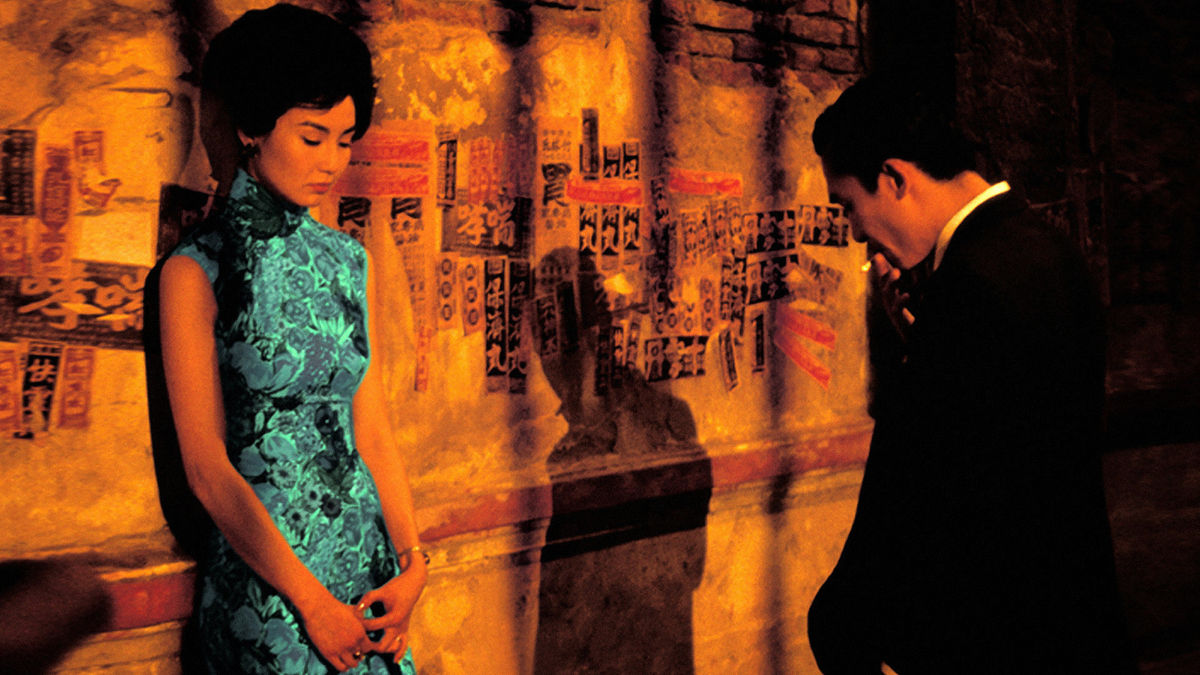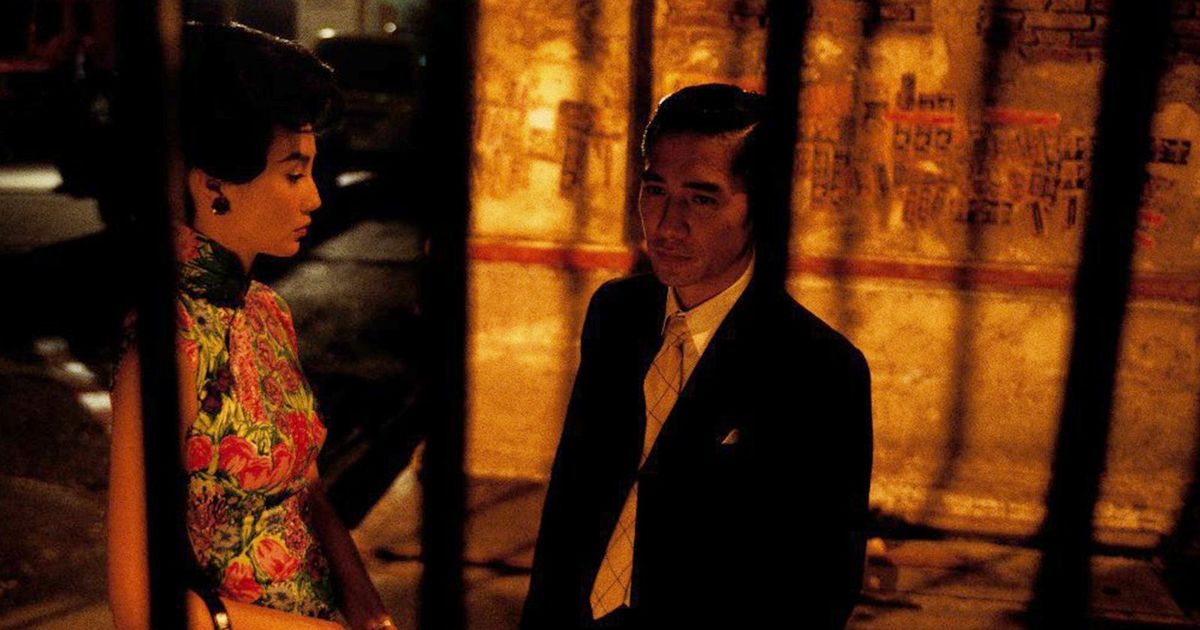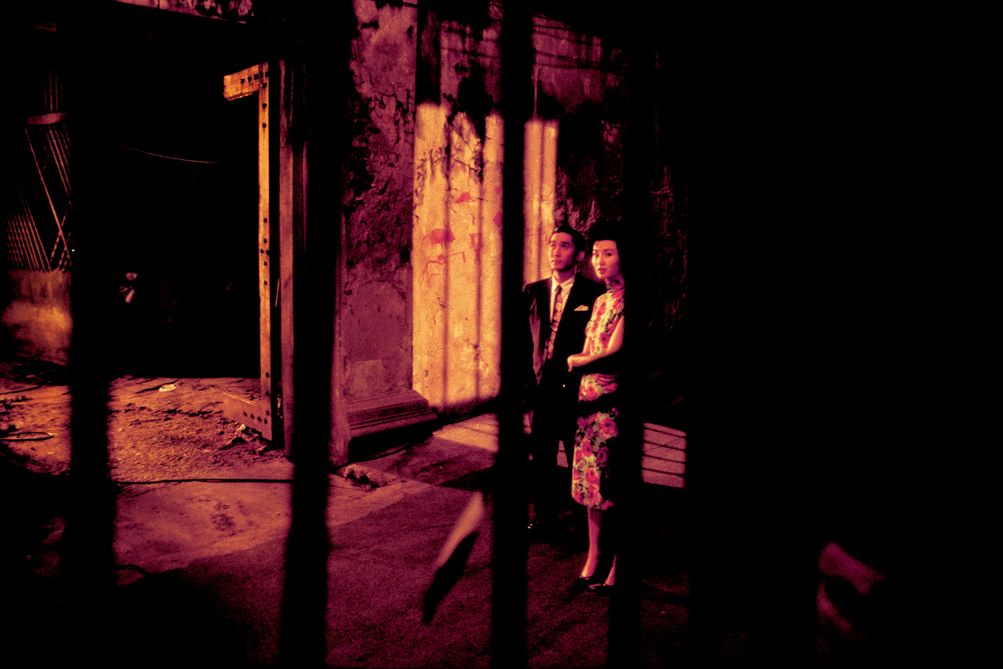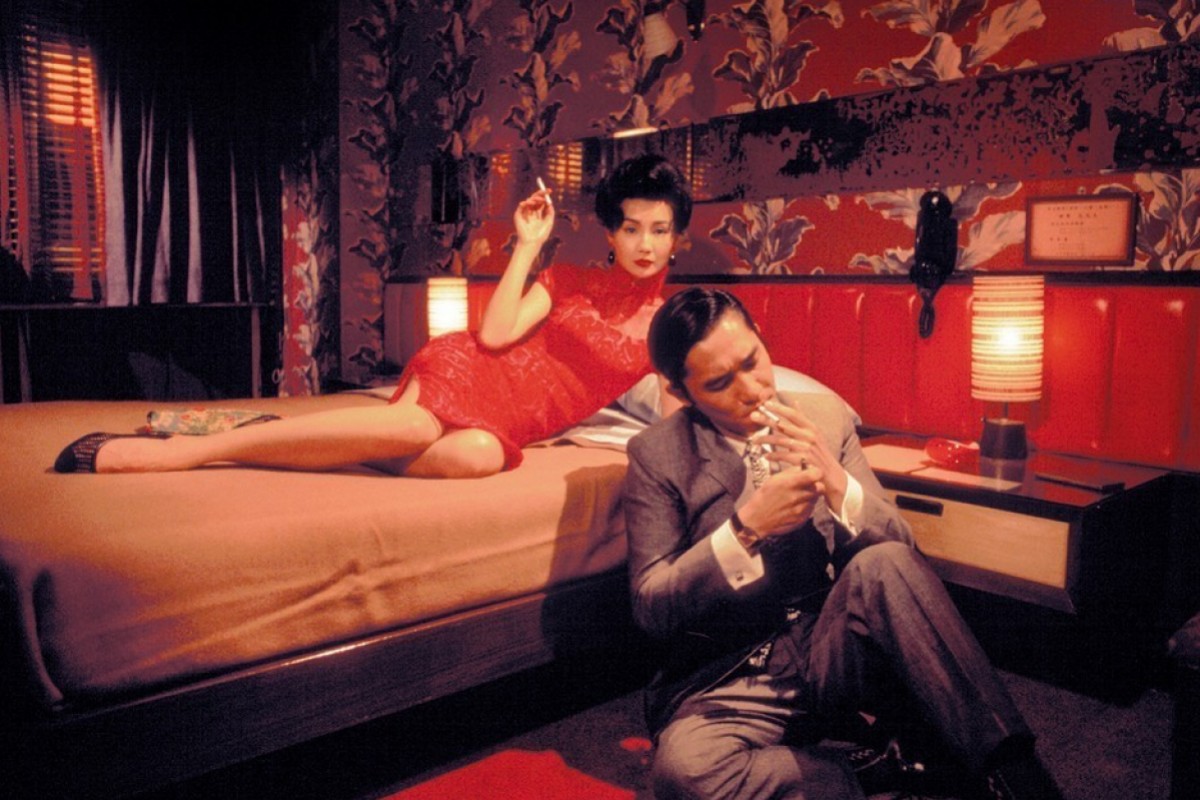
In the Mood for Love
Wong Kar Wai
Photo credits: WallpaperAccess
20th July 2020
In the Mood for love is arguably Wong Kar Wai’s greatest film. It is an unconventional romantic drama that transcends the limitations of storytelling by taking the audience through an audio-visual world of intense emotions between two lonely individuals.
It tells the story of Mr. Chow (played by Tony Leung) and Mrs. Chan (played by Maggie Cheung), whose lives cross as a result of various coincidences and a shared secret. For example, they both move into their rented apartments as neighbours with their respective spouses, on the very same day. Their spouses are often away for work, resulting in lonely late night dinners at the same street noodle stall, stumbling into each other by the communal hallways and worn-down staircases. As they begin to converse after chance encounters, they sadly confirm their suspicions that their respective spouses are not actually absent due to work but are actually having an affair with each other. So, not only do they share loneliness, but also heartbreak and sorrow.

Photo credits: Scroll.in
Despite the realisation of their both spouse's infidelity, there is little room for privacy or vunerability in the busy city, forcing them to uphold a facade of normality in the public eye. Only through each other is there emotional release and understanding of their new reality. Yet, meeting is difficult without the gossiping landlady and her Shanghainese friends taking notice, forcing them to meet in secrecy, as if, ironically, they too were in an affair. Consequently, an unusual relationship develops between the two based on late-night meals, Wu Xia novels and the desire to understand their spouses’ infidelity. They act out a number of rehearsed conversations together; attempting to recreate the circumstances of how their spouses met and how the affair began to develop, but promising “we will never be like them”.
So, they first come together, lonely as they both are, to support, understand and comfort each other in mutual friendship, but inevitably find their relationship standing between friendship and romantic intimacy, hesitating as they evade and long for each other's closeness.
The narrative is beautiful, experimental and subtle in its details, moving back and forth in a nonlinear fashion between ironic secrecy and truthful intimacy. The cinematography is so uniquely expressive with its bold saturated colours, off-centre framing and noticeable pacing. Every little detail is poetic; the rising cigarette smoke, the raindrops hitting the streetlamps, the colours worn and felt, and the sensitive rhythm of the music. The faces of their spouses are hidden from us, thus, forcing us to direct our attention to the key players and the heavy relationship developing between them. We peer through the gaps between doors, watch the reflections off the mirrors and look on whilst standing by the corridors and walk behind the walls, as if we are outsiders secretly watching the intimate moments shared between two lonely souls.

Photo credits: Angel Trinidad
The whole aesthetic provides a perfect combination of imagery, sound and dialogue, evoking so much emotion and feeling. The film’s setting undoubtedly adds to this aesthetic by displaying a fascinating snapshot of 1960s Hong Kong culture, a mix of Shanghainese and Cantonese dialects and the beautiful qipao dresses worn by Maggie Cheung's slender figure. Let’s not forget the absolutely gorgeous strings of “Yumeji’s Theme”, Nat King Cole’s "Quizás, Quizás, Quizás" and "Aquellos Ojos Verdes" repeated throughout the film's evocative slow-motion visuals, creating a lush texture over the heaviness of the film. Somehow, even the tonality of the Cantonese language resonates with atmosphere of imbued longing. It's almost as if the film would simply lose its magic if a single detail from its perfectly constructed world was changed. The viewer is inevitably immersed into the film's dream-like atmosphere, drifting with it's moods and ambiance as the two individuals make sense of their lives.
It’s a film about love, sadness, missed opportunities, loneliness, intimacy and the list goes on. It communicates something beautiful in a language that no other director has been able to successfully replicate. It is an outstanding cinematic achievement and a wonderful example of what film is truly capable of. If you haven’t watched it yet, I highly recommend you do so.

Photo credits: South China Morning Post